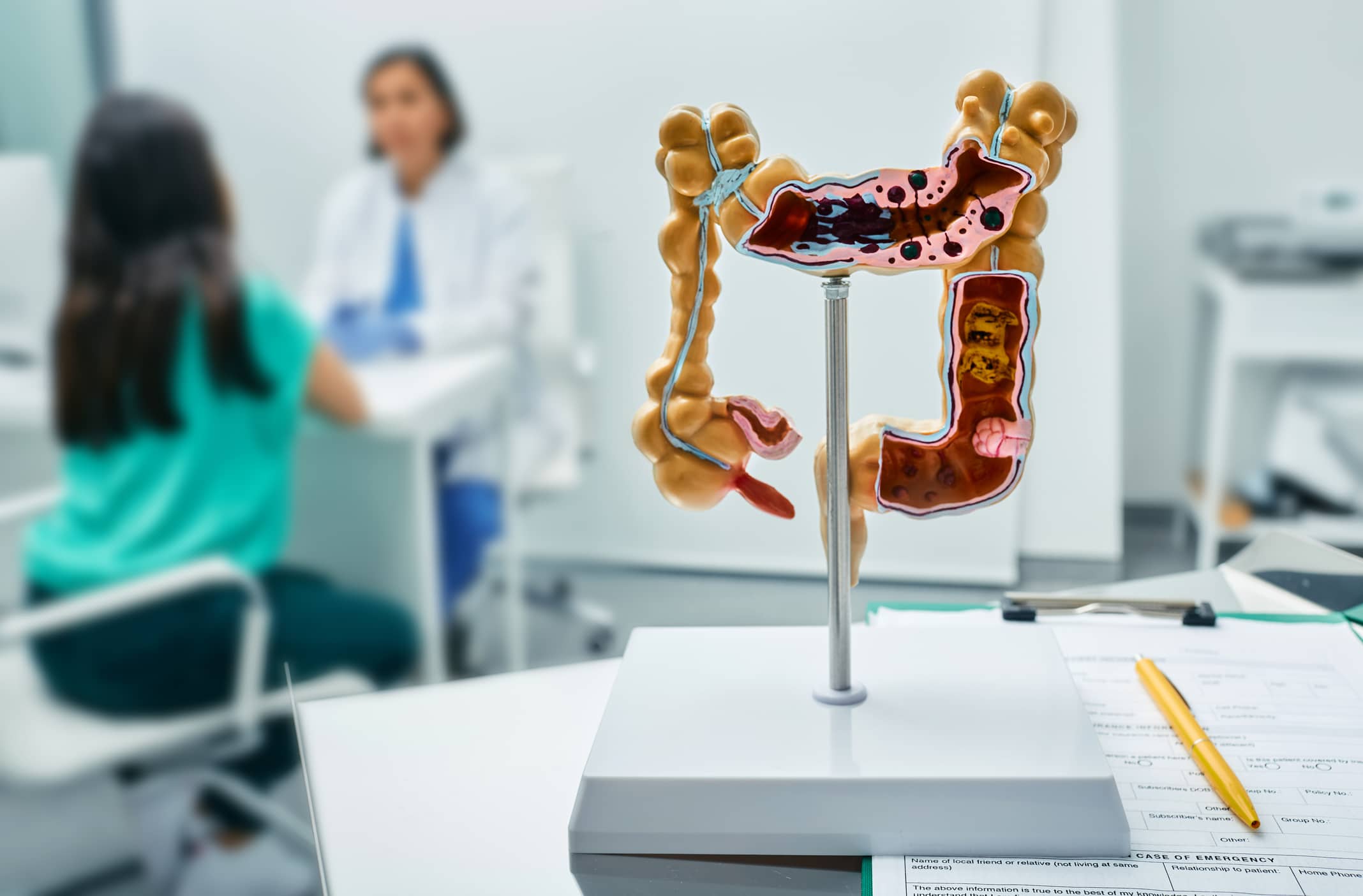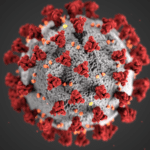Crohn's disease is a chronic inflammatory bowel disease that can affect any part of the digestive tract, causing a range of symptoms and complications. Diagnosing Crohn's disease in adults involves a comprehensive approach, considering various factors and utilizing advanced medical techniques. We’ll explore its potential genetic links, discuss its autoimmune nature, and focus on how Crohn's disease is diagnosed in adults, including the significance of colonoscopy and capsule endoscopy, also known as Pill-Cam.
What is Crohn's Disease?
Crohn's disease is a type of inflammatory bowel disease (IBD) characterized by chronic inflammation of the gastrointestinal (GI) tract. Unlike ulcerative colitis, another form of IBD that affects only the colon, Crohn's disease can impact any part of the digestive system, from the mouth to the anus. The inflammation in Crohn's disease can extend deep into the layers of affected bowel tissue and often occurs in patches, leaving healthy areas in between.
Is Crohn's Disease Genetic?
Research suggests that there is a genetic component to Crohn's disease. Individuals with a family history of the condition may have a higher risk of developing it themselves. While genetics play a role, it's essential to note that environmental factors also contribute to the development of Crohn's disease. Smoking, certain medications, and a history of infections in the GI tract are among the environmental factors that may increase the risk.
Is Crohn's Disease an Autoimmune Disease?
Yes, Crohn's disease is considered an autoimmune disease. In autoimmune conditions, the immune system mistakenly attacks the body's tissues, leading to inflammation and damage. In Crohn's disease, the immune system reacts to the presence of bacteria or other microorganisms in the GI tract, triggering an inflammatory response. This chronic inflammation can lead to the symptoms associated with Crohn's disease, such as abdominal pain, diarrhea, fatigue, and weight loss.
How is Crohn's Disease Diagnosed?
Diagnosing Crohn's disease involves a combination of a medical history review, physical examination, and various diagnostic tests, reflecting the complexity and variability of symptoms. A multi-faceted approach is essential for an accurate diagnosis.
Medical History and Physical Examination
Healthcare providers initiate the diagnostic process by compiling a detailed medical history and exploring symptoms, family history, and lifestyle factors. A comprehensive physical examination follows to identify signs of inflammation or abdominal tenderness.
Blood Tests
Blood tests evaluate inflammation markers like C-reactive protein (CRP) and erythrocyte sedimentation rate (ESR). They confirm inflammation and help rule out conditions with similar symptoms.
Imaging Studies
Imaging techniques, including X-rays, CT scans, and MRI scans, visualize the digestive tract, providing insights into inflammation or complications. These studies offer valuable information about the extent and location of the disease.
Colonoscopy for Crohn's Disease
A key diagnostic tool, colonoscopy assesses the colon and terminal ileum. This procedure involves inserting a flexible tube with a camera to directly visualize the intestinal lining, take biopsies, and identify inflammation, ulcers, or abnormalities.
Capsule Endoscopy for Crohn's Disease
Capsule endoscopy, also known as Pillcam, is a non-invasive procedure where a pill-sized camera is swallowed. As it travels through the digestive tract, it captures images of the small intestine, an area challenging for traditional endoscopy or colonoscopy. The Pill-Cam, or capsule endoscopy, is particularly useful for diagnosing Crohn's disease affecting the small bowel.
Pill Cam v. Colonoscopy For Crohn's Disease
When it comes to diagnosing Crohn's disease, the two most commonly employed methods are Pillcam (capsule endoscopy) and colonoscopy. The choice between these diagnostic techniques hinges on the specific clinical requirements and the suspected location of the disease within the gastrointestinal system.
Colonoscopy
Colonoscopy is a well-established and widely used diagnostic procedure for evaluating the colon and the terminal ileum. During a colonoscopy, a flexible tube equipped with a camera is inserted into the colon, allowing healthcare providers to directly visualize the intestinal lining. This procedure is highly effective in obtaining biopsies and identifying areas of inflammation, ulcers, or other abnormalities within the colon.
Pil-lCam (Capsule Endoscopy)
On the other hand, capsule endoscopy, colloquially known as Pill-Cam, is a non-invasive diagnostic method that offers a unique advantage in visualizing the small intestine. This is particularly relevant since the small bowel is not easily accessible through traditional colonoscopy. In capsule endoscopy, patients swallow a small, pill-sized camera that captures images as it travel through the digestive tract, providing a comprehensive view of the small bowel.
Choosing Between Pill Cam & Colonoscopy
The choice between Pill-Cam and colonoscopy depends on the clinical considerations and the suspected location of Crohn's disease. While colonoscopy is invaluable for assessing the severity and distribution of the disease within the colon, Pillcam plays a crucial role in cases where the small intestine is the primary area of concern. Often, healthcare providers may utilize a combination of both methods to ensure a comprehensive evaluation, offering a more detailed understanding of the extent and nature of Crohn's disease for an effective treatment plan.
Treatments For Crohn's Disease
Navigating the complexities of Crohn's disease treatment demands a tailored strategy to alleviate symptoms and improve quality of life. From medication-based therapies to surgical interventions and lifestyle modifications, a comprehensive approach is essential for effectively managing this chronic condition.
Medication-Based Treatments
- Anti-inflammatory Drugs: Medications such as corticosteroids, aminosalicylates, and immunomodulators are often prescribed to reduce inflammation in the digestive tract and alleviate symptoms.
- Biologic Therapies: Biologic drugs, including TNF-alpha inhibitors, interleukin inhibitors, and integrin receptor antagonists, target specific components of the immune system to control inflammation and promote healing in the intestines.
- Immunosuppressants: Drugs like azathioprine, methotrexate, and cyclosporine suppress the immune system's activity, helping to reduce inflammation and prevent disease flare-ups.
Nutritional Therapy
- Exclusive Enteral Nutrition (EEN): EEN involves consuming a nutritionally complete liquid formula as the sole source of nutrition for a specified period. It can help induce remission, especially in children with Crohn's disease.
- Dietary Modifications: While no specific diet can cure Crohn's disease, some individuals find relief from symptoms by avoiding certain trigger foods, such as dairy, high-fiber foods, and spicy foods. Working with a registered dietitian can help identify personalized dietary strategies.
Surgery
- Strictureplasty: This surgical procedure is performed to widen narrowed segments of the intestine (strictures) caused by scar tissue formation.
- Resection: In cases of severe inflammation, obstruction, or complications like fistulas or abscesses, surgical removal of the affected portion of the intestine may be necessary.
- Proctocolectomy: For individuals with extensive involvement of the colon and rectum, removing the entire colon and rectum (proctocolectomy) with or without ileostomy may be recommended.
Lifestyle Modifications
- Smoking Cessation: Smoking can exacerbate Crohn's disease symptoms and increase the risk of complications. Quitting smoking is crucial for managing the condition effectively.
- Stress Management: Stress does not cause Crohn's disease, but it can exacerbate symptoms. Engaging in stress-reducing activities such as exercise, meditation, and counseling can help improve overall well-being.
Clinical Trials and Emerging Therapies
Participating in clinical trials can provide access to novel treatments and contribute to advancements in Crohn's disease management. Emerging therapies such as stem cell therapy, microbiome modulation, and targeted immunotherapies hold promise for the future treatment of Crohn's disease.
Understanding the Diagnosis of Crohn’s Disease in Adults at Northeast Digestive
Diagnosing Crohn's disease in adults requires a comprehensive approach that considers various factors, including medical history, physical examination, blood tests, and imaging studies. Colonoscopy and capsule endoscopy are instrumental in visualizing and confirming the diagnosis, allowing healthcare professionals to tailor treatment plans based on the specific characteristics of the disease.
Enhance your digestive well-being with our gastroenterologists' expertise. Suspecting Crohn's disease? Explore advanced diagnostics techniques like Pill Cam and colonoscopy in our center in North Carolina for personalized insights. Schedule a consultation at Northeast Digestive for proactive digestive health.




